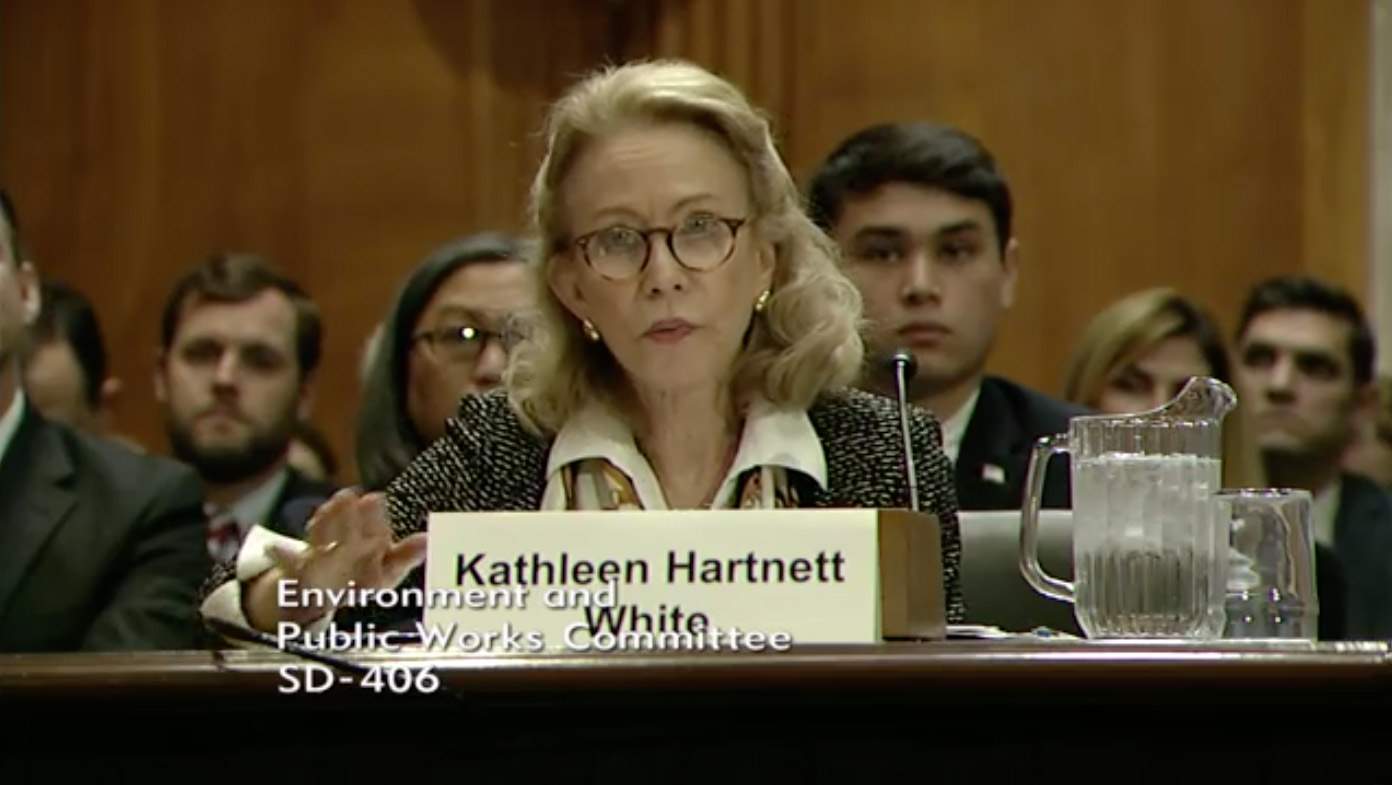
Texan Kathleen Hartnett White Too Extreme for Trump Administration
Senate Democrats vowed to give the Trump administration a fight over her nomination.
After a long and contentious U.S. Senate confirmation process, Kathleen Hartnett White has been kicked to the curb. White, it appears, has proven too extreme even for the Trump administration.
More than 80 days after White was nominated, the White House withdrew her name from consideration to lead the Council on Environmental Quality. The Washington Post first reported the news on Sunday. Shortly after, White announced that the decision to withdraw was “in the best interest of facilitating confirmation of the President’s nominees throughout his administration, as well as the needs of my family and work.”
Even among the Trump administration’s eyebrow-raising, fox-guarding-the-henhouse slate of far-right nominees, White stood out. During her time on the Texas Commission on Environmental Quality and at the conservative Texas Public Policy Foundation, she argued that renewables are “a false hope” and that coal helped abolish slavery. Among her many demonstrably false proclamations, White called climate change the “dogmatic claim of ideologues and clerics” and said that carbon dioxide is not a pollutant.
Unsurprisingly, Democrats on the U.S. Senate Committee on Environment and Public Works vehemently opposed her nomination. During the November confirmation hearing, White was grilled by Democrats and was embarrassingly underprepared to answer basic questions on climate policy. Even some Republican members of the committee seemed uncertain about confirming her. White had made several comments against the Renewable Fuel Standard, which requires ethanol and other biofuels be blended into fuel and has widespread bipartisan support among Midwestern lawmakers. Republicans on the committee worried that White, if confirmed, might flip-flop on the issue and work to repeal the policy, a position she has advocated in the past.
Still, the committee voted along party lines and advanced her nomination to the full Senate. Then, White committed a cardinal mistake. In response to a series of questions from the Senate Democrats, White seemed to have plagiarized answers from EPA administrator Scott Pruitt and EPA assistant administrator Bill Wehrum in at least 18 instances. Senator Tom Carper, minority leader on the environment committee, and other Democrats wrote that they were “troubled” White appeared to “have cut and pasted from the written answers of other nominees.”
But by the end of December 2017, the Senate had failed to bring up her nomination after 77 days. The Senate decided at the close of session to send the nomination back to the White House, instead of tabling it for the next year, forcing the White House to decide whether to renominate her. In January, the White House resubmitted her name for consideration along with several others. Carper responded that White’s “disdain for science and basic facts is clear” and that the Trump administration “should expect a fight.”
Now, the Trump administration has apparently decided White is not worth the fight. Under pressure, the White House also withdrew industry scientist Michael Dourson in December. He had been nominated to lead the EPA’s chemical safety division.
Meanwhile, Texan Susan Combs, who has been nominated to the Department of the Interior, is still awaiting a vote before the full Senate. Like White, Combs, who as Texas comptroller worked to favor industry interests over endangered species protections, was renominated by the Trump administration after the Senate failed to consider her nomination before close of session last year. It has been 180 days since Combs was first nominated.


